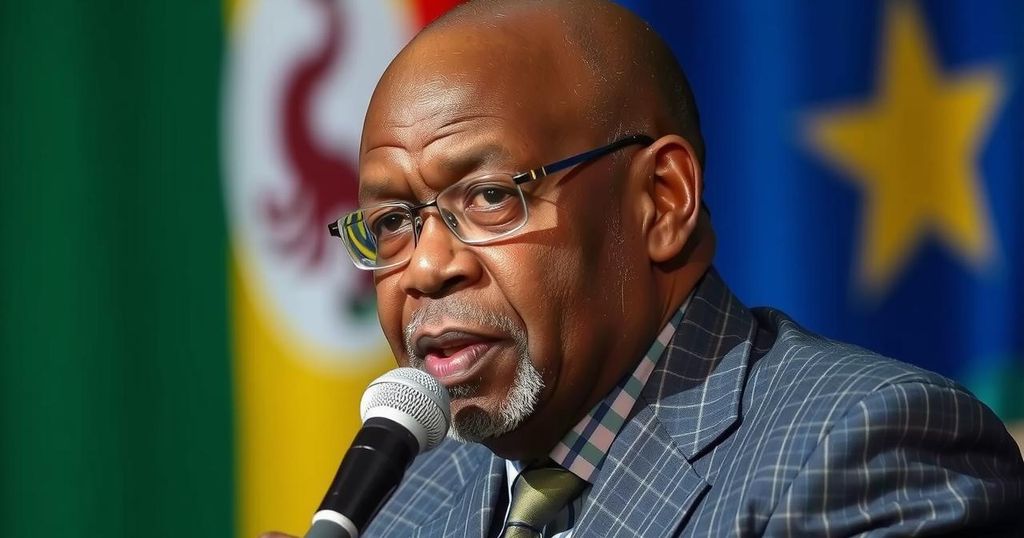Duma Boko has become Botswana’s President, achieving what no other opposition leader has done in over fifty years by defeating the Botswana Democratic Party. His legal expertise and engaging campaign strategies resonated with the electorate, leading to his significant victory. Boko’s commitment to economic reform and political engagement suggest a new chapter in Botswana’s governance, focusing on addressing the needs of the populace.
Duma Boko, now the President of Botswana, is recognized for his confident demeanor and extensive background as a human rights lawyer. At 54 years old, he marks a historic victory, making him the first to unseat the Botswana Democratic Party after over five decades of attempts by the opposition. Boko’s humble acceptance of his win, where he expressed a commitment to serve the people, reflects his diplomatic approach. His rise stems from a substantive campaign focused on economic reform and engagement with the populace, particularly youth, resonating through his direct outreach at rallies. Boko’s early life in Mahalapye and his legal education at Harvard Law School have shaped his principled and justice-oriented views. His leadership in the Botswana National Front and later, the United Democratic Change party, symbolizes a strategic shift towards collaboration among opposition groups. His outspoken statements on education drew criticism but did not deter his resolve. Supporters praise him for his genuine approach and sustained focus on the nation’s challenges, setting a tone for his presidency that seeks to address pressing socio-economic issues.
The political landscape in Botswana has been dominated by the Botswana Democratic Party for more than fifty years, making Duma Boko’s election as president particularly noteworthy. His background as a human rights lawyer and previous leadership roles within opposition parties underpin his political ideology and strategies. With Botswana facing economic hurdles, Boko’s promise of change resonates with a nation seeking new direction. His leadership style, characterized by approachability and a commitment to listening to constituents, marks a significant evolution in the country’s political dialogues.
Duma Boko’s historic election as President reflects a significant shift in Botswana’s political landscape, breaking a long-standing dominance by the Botswana Democratic Party. His commitment to addressing the nation’s economic issues and engaging directly with citizens demonstrates a new approach in leadership. With a strong legal background and a unifying vision among opposition parties, Boko’s presidency may facilitate the change many citizens have sought, marking a pivotal moment in Botswana’s democratic journey.
Original Source: www.bbc.com






